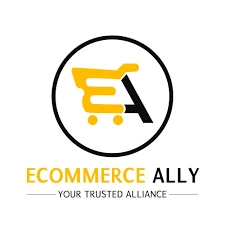When people nearby search for what you offer, does your business show up? If not, you’re missing the kind of attention that actually walks through your doors or hits “Add to Cart.” Local SEO isn’t just a checkbox on a digital marketing to-do list—it’s the frontline strategy for brands that want to dominate their neighborhoods, zip codes, and cities.
Whether you run a family-owned store, a multi-location franchise, or an online business serving regional pockets of the US, local SEO solutions are how you win the map, the search, and the sale.
Why Local Search Matters Right Now
People rely on Google to make decisions in real-time: where to grab lunch, who to call for HVAC repair, or which boutique has the best weekend deals. These decisions are driven by proximity, reviews, and relevance. If your business doesn’t appear in the local search pack—or worse, if your competitors look more appealing—you’re out of the running before a customer even walks in.
Local intent drives results. Ranking high in local searches means showing up when it matters most—at the decision point.
Strategy 1: Optimize Your Google Business Profile
If you haven't claimed and optimized your Google Business Profile, you're playing the game with one hand tied behind your back. It's your digital storefront, and Google heavily favors it when serving up local results.
What local SEO experts recommend:
- Choose the right categories for your business
- Add high-quality images (exterior, interior, team, products).
- Keep hours updated, including holidays
- Encourage reviews—and respond to every single one
- Use the post feature to share offers, updates, and events.
Remember, this listing isn't static. Treat it like a mini social feed with timely updates that show you're active and engaged.
Strategy 2: Get Your NAP Right—Everywhere
NAP stands for Name, Address, and Phone Number. Sounds simple, but you'd be surprised how often this critical info is inconsistent across platforms like Yelp, Facebook, Yellow Pages, and even your own website.
Inconsistencies create doubt in Google's eyes. Uniformity across all citations sends a clear signal: this is a legitimate, well-established business.
Pro tip: Use a citation management tool or ask a local SEO expert to audit and fix your listings across the web.
Strategy 3: Create Hyperlocal Content That Resonates
Don’t just talk about what you sell—talk about your community. Mention local events, collaborate with nearby businesses, or highlight regional customer success stories. When your website reflects real ties to the area, Google pays attention.
Some ideas:
- “Best local gift ideas for Chicago moms”
- “How our Miami clients use our products during hurricane season”
- “Partner spotlight: Supporting small businesses in Dallas”
This builds trust and relevance—two pillars of the best local SEO approach.
Strategy 4: Location Pages that Actually Work
If your brand serves multiple cities or neighborhoods, you need location-specific landing pages—but not the kind that just copy-paste the same paragraph with a different city name. That’s lazy, and it won’t rank.
Instead, create rich, valuable pages for each area you target. Include:
- Testimonials from local customers
- Location-specific FAQs
- Local staff or service hours
- Directions, parking tips, or neighborhood highlights
These pages should feel unique, not templated. It’s extra work, but the payoff is worth it.
Strategy 5: Get Serious About Local Link Building
You know backlinks help SEO—but for local SEO, local backlinks are gold.
Where to start:
- Join local business directories (Chamber of Commerce, Better Business Bureau).
- Collaborate with local bloggers or news outlets
- Sponsor a school event, charity, or little league team—and get a link in return
- Participate in community events and ask to be listed as a vendor
Local link building isn’t glamorous, but it’s one of the most trusted tactics used by the best local SEO teams across the country.
Strategy 6: Mobile Optimization Is Mandatory
Local searches mostly happen on mobile devices. Whether someone’s looking for a “near me” business while walking down the street or searching from their car (hands-free, hopefully), your site needs to load fast and look flawless on small screens.
Make sure:
- The site loads in under 3 seconds.
- Buttons are thumb-friendly.
- Navigation is clean and simple.
- The click-to-call button is prominent.
Page speed and mobile usability are ranking factors, but they’re also conversion killers if ignored.
Strategy 7: Reviews: Your Secret Weapon
Good reviews don’t just impress potential customers—they also boost your ranking in local search results.
What helps:
- Asking politely after a purchase or service
- Making it easy with a direct review link
- Responding to all reviews—yes, even the negative ones
- Showing appreciation to loyal customers publicly
Local SEO experts know that reviews aren’t just about reputation—they’re an algorithm signal. The more relevant, recent, and positive, the better.
Strategy 8: Use Structured Data Markup
This one’s more technical but powerful. Schema markup tells search engines what your business is about in a language they understand. Adding local business schema to your site helps highlight key information like address, hours, reviews, and services.
It can also increase your chances of getting rich snippets—those enhanced listings that catch the eye (and the click).
Ask your developer or SEO team to set this up. It’s a backend move with front-page benefits.
Ready to Win Local?
Local SEO isn’t just for brick-and-mortar stores. It’s for any business that wants to build regional authority and connect with customers close to home.
At Ecommerce Ally, we specialize in local SEO solutions tailored to your goals, your market, and your growth. Whether you're just getting started or ready to outpace the competition, our local SEO experts are here to guide the way.
Let’s make sure when people search nearby, it’s you they find first.
Talk to the best local SEO team today. Your neighborhood is searching. Let's make sure you show up.
FAQs:
1. What is the best strategy for local SEO?
Optimizing your Google Business Profile, keeping your NAP information up to date, obtaining local backlinks, and producing hyperlocal content that is relevant to the search intent of your target area are the best local SEO tactics.
2. What are the 3 C's of SEO?
Credibility, code, and content are the three C's of SEO. When combined, they guarantee that your website is valuable, technically sound, and reputable with search engines and users alike.
3. How to improve local search ranking?
Optimize your Google Business Profile, make sure your NAP information is consistent, build local backlinks, get good reviews, produce location-based content, and improve the functionality of your mobile site in order to raise your local search ranking.



